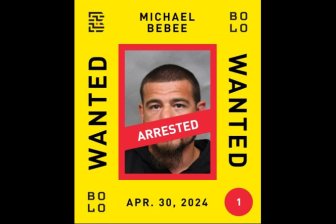Looking for more Indigenous news? Find our stories here.

Kānaka Maoli, the Native people of Hawaii, have long asked for visitors to stop coming.
“We’ve been telling people not to go to Hawaii for years now; this is not something new. But it’s certainly been amplified by COVID-19 and especially natural disasters like hurricanes and wildfires – things that really put a strain on Hawaii’s resources,” said Camille Leihulu Slagle, a university student, advocate and Kānaka Maoli.
“We can barely sustain our own people.”
The island’s increase in visitors over the last few decades has led to an affordability crisis, increased homelessness and damage to an already fragile ecosystem — all made worse by natural disasters like the recent fire and devastation that tore through Lahaina.
As many tourists despair over cancelled holidays or continue vacationing, Kānaka Maoli and many locals are left homeless, listed as missing, or fundraising to support their kin.
The wildfire death toll is already the highest in modern U.S. history, with hundreds still missing — it has destroyed or damaged at least 2,200 structures.
Recovery is difficult with each disaster, with some Kānaka Maoli and locals having to wait months or years for insurance payouts. They are then subsequently priced out of the community re-build.
Slagle said the calls to not visit Hawaii are fueled by investors and developers, by colonization, gentrification and historic instances like the 1893 overthrow which saw American troops invade the Kingdom of Hawaii.
“Lahaina was the first capital of the Hawaiian Kingdom (because of) its wetlands and its abundance and stability … people were able to grow crops, catch fish and everything,” said Slagle. “But now, because of gentrification and colonialism … it’s no longer wetland, it’s now dry land with all the water being diverted away from its residents and towards things like golf courses and hotels.“
By coming to Hawaii, visitors are directly participating in something that hurts Indigenous people and contributes to colonization, she said.
Even amidst the disaster and recovery, many say vacationers still aren’t listening.
“We’re still seeing tourists. We’re still seeing people who are just plain ignorant and selfish still coming to Hawaii because they don’t understand,” said Tee, a mother, student and Kānaka Maoli.
“They think this is their playground if they splash some money around, they think we’ll do as they say.”
Tee has been coordinating work on the ground, fundraising for supplies, purchasing respirators and N95s for locals still in Lahaina.
“When Kānaka Maoli are telling you to leave us alone so our land, oceans and people can heal, it’s not fake,” said Tee. “We’re concerned about how much longer we’ll be able to live on our own ancestral land.”
Before the pandemic, tourism represented roughly a quarter of Hawaii’s economy. According to the Hawaii Tourism Authority, in 2019 the industry yielded nearly $17.8 billion in visitor spending.
Many say the islands need tourism to survive, but some Kānaka Maoli say that’s not true.
“We never did and we never will need tourism. The only reason why we, quote need tourism, unquote, is because we’ve had our government and culture taken away from us, we’ve had all of our rights stripped away from us,” said Leihulu Slagle.
“As a result of (the Kingdom of Hawaii) becoming Americanized, we’ve moved away from an economy of local produce and local people to being so reliant on imports.”
While it may be difficult to dissuade people from visiting Hawaii entirely, Slagle said people need to know the harm visiting causes.
“Read the history books, know what you are contributing to,” she said.
“Myself and other Native Hawaiians sharing our message – we’re never going to be able to stop tourism as a whole. But what we can do, and what we are hoping to do, is show people the harm that it presents to both the environment and to Native culture.”




Comments